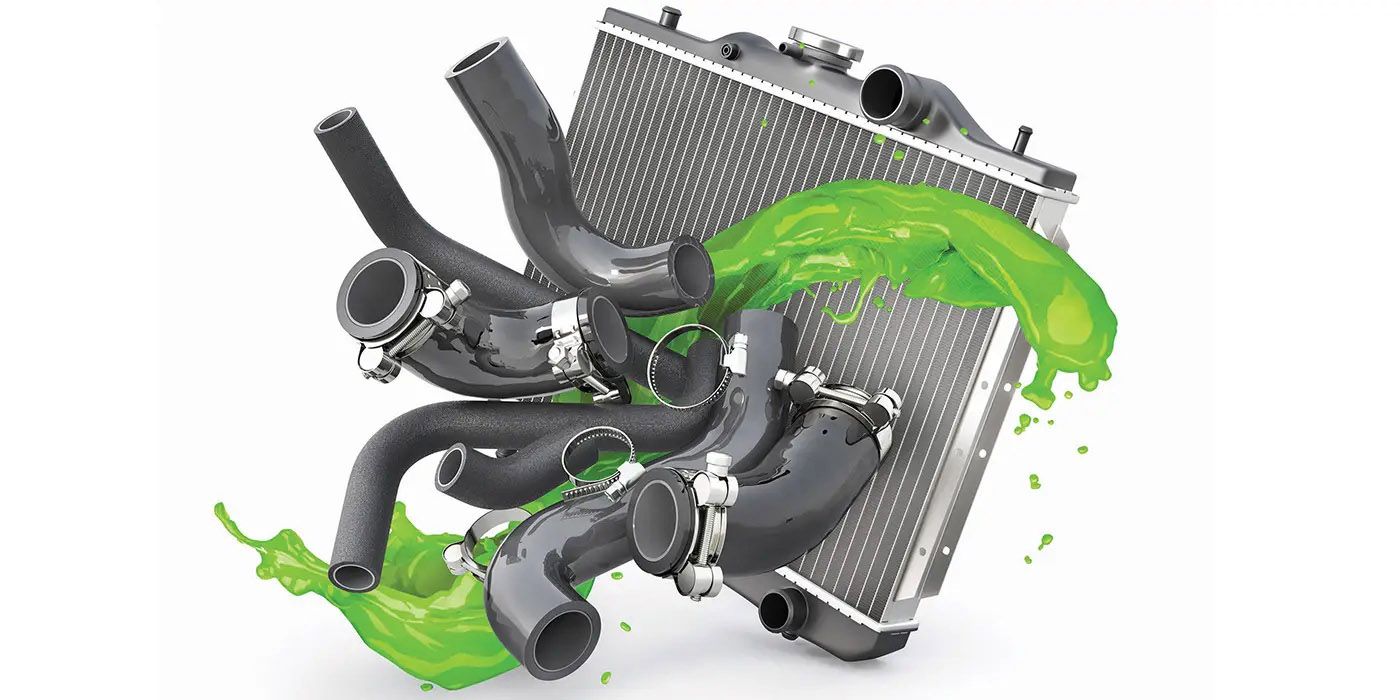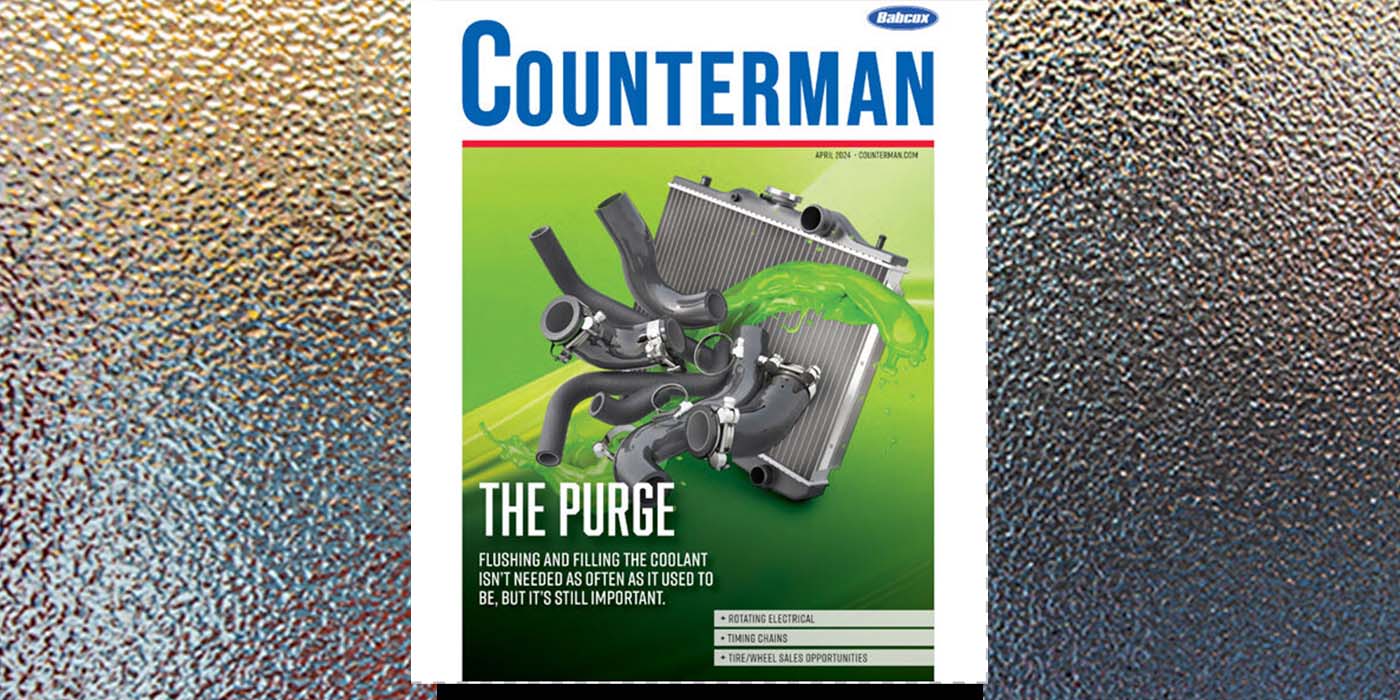Technical training is always a hot industry topic, both because it’s often perceived as a panacea for the industry’s ills and because it’s a necessary function for a technology-based service industry. With that said, providing training in a cost-effective and time-efficient manner is becoming a tough nut to crack for auto manufacturers, aftermarket parts suppliers and, of course, the local jobber who wants to provide training to his local dealer base.
Most jobbers and dealers understand how difficult it can be to provide training on a complex technical issue like OBD II driveability diagnostics. In many cases, advanced training can’t be done in the typical jobber-sponsored, three-hour evening session. Nevertheless, jobber-sponsored training is as important as ever in today’s service market. To understand where jobber-sponsored training fits into today’s service market, let’s look at some of the current trends in technical training.
TRAINING TRENDS
Many auto manufacturers have closed their regional training centers and have instead distributed PC-based training materials that can be used by dealership technicians at their convenience. Since a great deal of location, travel time and training personnel have been eliminated, the primary advantages of PC-based training are greatly decreased costs at the dealership level. The downside, of course, is the technician lacks the interaction of hands-on, nuts-and-bolts training.
The aftermarket has taken several completely different approaches. First, a number of companies now offer high-quality, basic- and advanced-level video or DVD-based training that costs much less than attending remote-site training. Second, several programmed distributors have written hood-to-trunk, sequential training programs that effectively can provide "ground-up" training for entry- and advanced-level technicians. In line with these offerings, many parts suppliers and parts distribution systems offer one- or two-night training clinics designed to update technicians on the latest systems and product offerings.
Next, many independent trainers and training companies have created courses that offer advanced training for technicians specializing in areas such as emissions, driveability and diesel power diagnostics/repair. Lastly, trade associations, like the Automotive Service Association, offer a unique variety of specialized training either through state affiliates or at its national CARS convention held in Las Vegas each November.
TRAINING NEEDS
Although the following statement might be open to question, I think it’s fair to say that advancing technology has driven the aftermarket automotive service industry into specialization. To illustrate, we have shops that specialize in nameplate, repair, maintenance, diagnostic, undercar, underhood, heavy-duty and machine shop-based services. All of these shops have uniquely different training requirements, each with its need for basic and advanced training.
TRAINING FORMATS
It’s my personal opinion that it’s very difficult for a young person to succeed in our current technical climate without a graduate degree from a NATEF-certified auto mechanics program. A good vocational program will proved a solid foundation in vehicle operating principles and the essential hands-on technical skills needed to begin a career in automotive service. Unlike specialized in-field training, vocational education provides the required understanding of the networked electronic functions now taking place in the modern automobile. So, yes, a vocational degree can be considered a prerequisite for professional-level training.
Moving into the repair shop, PC, DVD and video-based training are excellent methods of learning basic skills or updating knowledge. They are self-paced, highly individualized instruction that can be repeated at will. The disadvantages, of course, are that it lacks interaction with a knowledgeable instructor.
Classroom or on-site formats obviously offer considerable interaction with instructors and other technicians. Its limitations are its difficulties in tailoring instruction to individual needs and difficulty in assembling a group of technicians at a particular place and time in order to deliver the training.
Lastly, I’d like to mention that highly specialized classes are becoming very popular among advanced technicians. These classes offer very advanced training to groups of technicians ranging from about thirty in hands-on classes to more than one hundred attendees in seminar-style classes. The average cost ranges from about $300 for a two-day or night session to about $1,500 for five consecutive daytime sessions. In some cases, the classes are offered via invitation or are specifically aimed at Master ASE Certified Auto Technicians with the L1 certification in advanced engine performance. Although these classes are very advanced and highly specialized, they attract attendees from across the country.
INSTRUCTIONAL METHODOLOGY
During the past three decades, I’ve both taught and attended many training classes. It should not be the intent of any instructor or class to impress, embarrass or confound the student. To the contrary, it should be the intent of every class to advance the student to a higher level of understanding. Each class should be structured with a specific educational objective in mind. Unstructured classes with no specific outcomes or objectives are destined to fail.
Excessive product promotion in a class will discourage future attendance. Sure, the attendees are aware that the class is sponsored by the manufacturer of a particular product and are willing to accept promotional literature. But, using a class to disparage competitors and promote product is bad form and isn’t readily appreciated by those seeking technical education.
The medium is as important as the message. Too often, course content that depends too much upon verbal presentation is lost as soon as the student leaves the classroom. Instead, a class should rely upon good visuals such as a PowerPoint presentation, good mock-ups and a well-prepared textbook that outlines the course content and provides enough space for the student to take notes for future reference.
The instructor must be familiar with the curriculum. In addition, he needs enough recent field experience to address the many questions and concerns posed to him by his students. Some of the most informative classes are those in which the instructor learns as much from his students as the students learn from him!
WHEN WILL TECHS TRAIN?
With all the training that’s available, it seems a daunting task for any jobber to offer training relevant to the modern service market. But jobber-sponsored training is an integral part of maintaining a local dealer base because only the local jobber understands the training needs of his wholesale accounts.
Jobbers often find that it’s difficult to fill classes. In most cases, the instructor’s reputation, the class content and convenient scheduling have the most positive effects on attendance. An instructor, for example, must be able to present his material in a concise, lively fashion. He is also usually able to appeal to all skill levels by summarizing or interjecting the basics into the presentation so he can move on to more advanced material. In addition, a good instructor is able to evaluate the general abilities of his class and adjust the learning level accordingly.
As for scheduling, a four- or six-hour class might work on a Saturday if it provides quality instruction and relevant material. Daytime classes usually aren’t popular with shop owners because they can’t spare their key techs. Evening classes, on the other hand, are the easiest to attend because they don’t take away from productive time in the shop.
As for content, I believe the best classes are those that focus on the updating of old technology or the introduction of new technology. A/C, for example, seems to undergo constant changes in diagnostic procedures and materials.
Locating a class in the correct environment is essential for success. Classes that require live demonstrations are best taught in a shop environment provided by a local independent shop or auto mechanics program.
A jobber should provide as much advance notice as possible to encourage attendance. Adding a good instructor, relevant course content, a few door prizes and some good food will certainly help any jobber create a very enjoyable training session.







